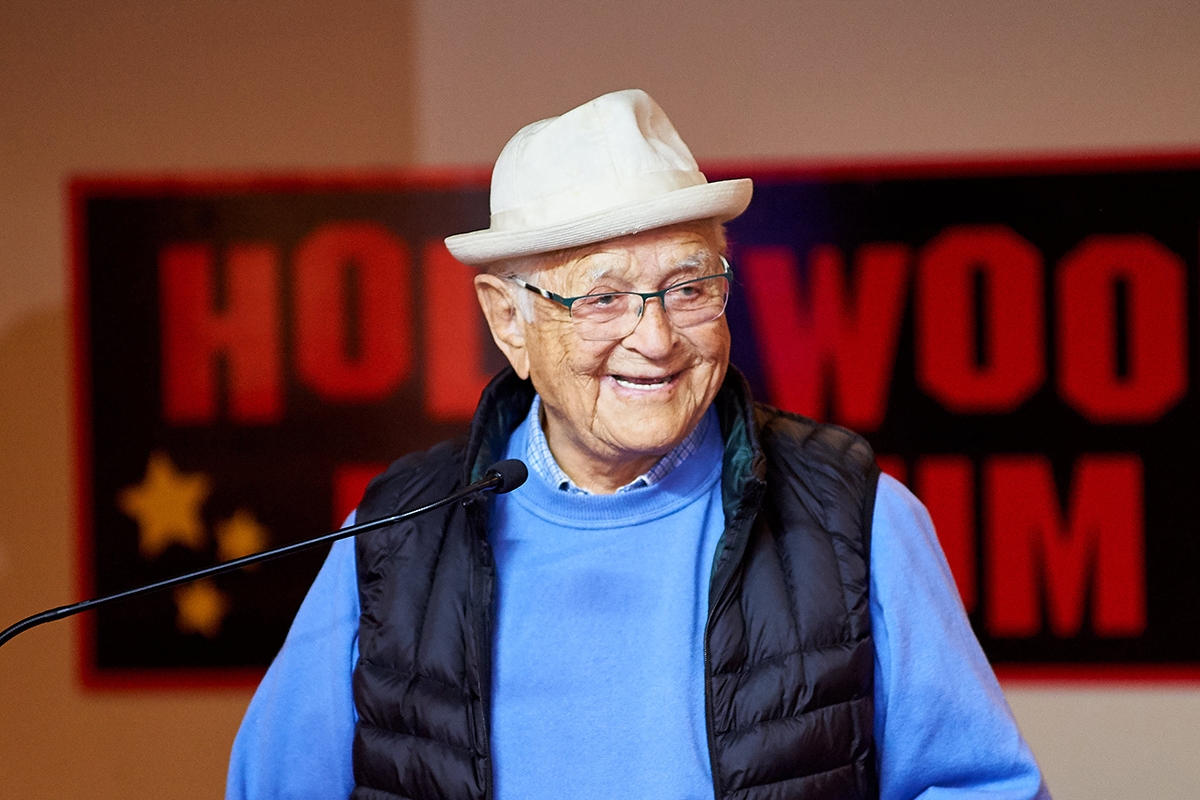Norman Lear died on December 5 at age 101 — not quite 120, but he was a blessed Jewish man, indeed.
He was surrounded by his loved ones at the time of his passing. “We told stories and sang songs until the very end,” his family wrote in a statement announcing his death.
Lear is most well-known for making history-changing television, at the helm of shows like “All In the Family,” “Maude” and “The Jeffersons,” shows that shone light on injustices and ordinary people, shows that kept people entranced and entertained.
He was a father to six, a grandfather of four and a second father to more than we could probably ever count, from director and “All In the Family” star Rob Reiner, who wrote that he loved Lear with “all my heart,” to a younger generation of creators. He was the kind of man who saw purpose in every detail and every interaction.
I loved Norman Lear with all my heart. He was my second father. Sending my love to Lyn and the whole Lear family.
— Rob Reiner (@robreiner) December 6, 2023
“Norman lived a life in awe of the world around him. He marveled at his cup of coffee every morning, the shape of the tree outside his window, and the sounds of beautiful music. But it was people — those he just met and those he knew for decades — who kept his mind and heart forever young,” his family wrote in their statement. “As we celebrate his legacy and reflect on the next chapter of life without him, we would like to thank everyone for all the love and support.”
Norman Lear was born in 1922 in New Haven, Connecticut. His Jewish father, a mostly unsuccessful salesman who would go on to be incarcerated for selling fake bonds, was some of the inspiration for the right-wing and racist character of Archie Bunker in “All in the Family,” both for his politics and the way he spoke to his wife.
It was while his father was incarcerated that something happened to Lear that forever changed his outlook on the world. Tinkering with the radio one night he happened on the show of Father Coughlin, the vehemently antisemitic religious leader. At that young age, he realized that people hated him simply for being born a Jew, a fact that made him want to fight for justice for anyone who was hated simply for being born a certain way.
It was at that time, also, that Lear made a deep connection that, I would argue, informed his work just as deeply as his fraught relationship with his father.
As Rhonda Garelick wrote in the New York Times, Lear’s shows portrayed middle-aged women as nuanced, complex characters worthy of the spotlight and of having their stories told, not just of being punchlines. That’s perhaps because, from a young age, Lear had a woman like that whom he treasured: his Yiddish-speaking bubbe, or grandmother, Lizzy.
He loved the way the Jewish language tumbled out of her mouth, he told the Yiddish Book Center, and the gefilte fish she made was the best in the world — he had never tasted better. But more than anything, he loved the woman herself, short and round, with “the greatest smile in the history of smiles.”
“She was all about love,” he said wistfully in an excellent Jewish oral history. “I can see her bare feet on the linoleum floor in the kitchen.”
In that same interview, he also spoke about his Jewish childhood. “I am culturally Jewish but I am not a religious person,” he shared, though added that he attends High Holiday services with his son, Benjamin. His parents were Jewish in the same way. “My bar mitzvah” at Brooklyn’s Temple Shaarey Tzedek, he said, “was basically a party for my parents and their friends.” He wound up spending all the money he got that day in Coney Island.
Yet while fighting in the U.S. air force in World War II, Lear felt incredibly informed by his Jewish identity. He was aware of the Nazi persecution of the Jews, and that made him feel even more justified in his fight.
Lear was never shy about his politics. He founded People for the American Way in 1980, a response to organizations like Moral Majority, promoting, among other things, freedom of speech and abortion and LGBTQ+ rights.
Just last year, he called out Trump’s antisemitism by writing that he “read Donald Trump’s appalling words about American Jews, and I am nine years old again [listening to Father Coughlin’s antisemitism on the radio.] The phrase, a horse’s ass, was an everyday expression when I was nine and it occurs to me again now.”
Talking about the recent rise of antisemitism, Lear said he felt disbelief at seeing it rear its ugly head once more. “America has not realized all of its promise, but the promise is nonetheless there. There are enough of us dedicated to that promise that all men are created equal,” he said in a recent interview.
Lear felt like family to everyone. He was generous and kind with his time, affection and attention. The messages of profound love eulogizing him in the days since his passing are too many to count. And yet more than anything, he loved his own family. Lear was married three times and had six children: one daughter, Ellen, from his first wife, Charlotte Lear; two daughters, Kate and Maggie, with his second wife, the late Frances Lear; and two daughters, Brianna and Madeline, and son Benjamin with his wife Lyn Lear, who he was lovingly married to until his last days.
He marveled in an interview with Anna Sale at how well his family gets along. “They’ve spent time together. And fallen in love with each other. And that hasn’t – that part hasn’t been tough. It grew naturally.”
His last post before his death was about a musical collaboration with his grandson, musician Noah LaPook.
“One of the easiest, happiest, and most treasured decisions I ever made was to participate in this song with my glorious grandson Noah LaPook as he wrestles to make the right decisions in life. And he will, I know,” he wrote.
The title of the song is “Decisions, Decisions,” and in the end, you can hear Lear laugh heartily and then tell his grandson, “I love it,” about the tune. The love in his voice is so palpable.
What an incredible legacy of warmth and kindness Norman Lear has left behind. May his memory be forever for a blessing.








